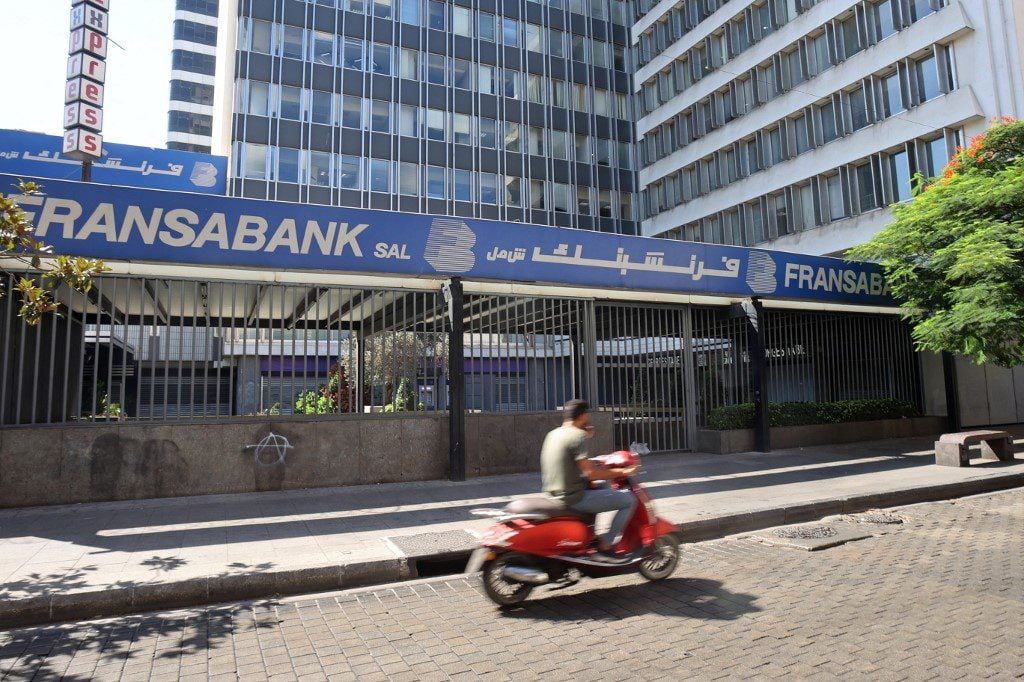
Justin Salhani
As political blocs enter drawn-out discussions and negotiations over Lebanon’s next president, the country continues to reach new lows in its three year collapse.
Lebanese President Michel Aoun’s term ends on October 31 and with the date fast approaching, political negotiations have begun over his successor. With the seat historically only being assigned to a member of the Maronite sect, the first names to emerge are the Free Patriotic Movement’s leader Gebran Bassil, Lebanese Forces’ Chief Samir Geagea, and head of the Marada Movement Sleiman Frangieh.
All three are establishment figures with links to the political elite the Oct 17 revolution sought to bring down. The World Bank blames Lebanon’s “political elite” for the country’s economic freefall in recent years, and labels it a “deliberate depression.”
The Lebanese Lira has lost more than 90 percent of its value over the last three years and continues to violently fluctuate in relation to the US dollar, frequently reaching new lows in value.
The 30 year financial mismanagement by the Lebanese state left it without a way of financing debts, which has led banks to limit withdrawals. The withdrawal limits are often too low to meet basic needs, let alone medical emergencies, which have led to a recent spate of vigilante citizens entering banks with weapons to reclaim their own savings.
On September 16, at least five banks were held up, leading banks to go on strike and shut their doors for three days. The spate of hold ups came after three high profile incidents ended with a depositor walking having successfully recuperated thousands of dollars of their own savings.
The economic collapse is threatening all sectors of society. Teachers and employees from the state-owned internet company continue to strike for salaries that match the cost of living, the latter leaving the country with internet outages. Fuel subsidies were also stopped by the central bank, meaning gas prices are set to rise in a country where transportation is entirely dependent on cars and buses.
Meanwhile, Lebanon is still without a government, meaning it can’t agree on a budget or push through any reforms that would unlock badly-needed funding from the International Monetary Fund.
“Government-formation processes in Lebanon have become exasperating, drawn-out affairs, as the country’s political forces try to secure a large share of ministers as well as lucrative portfolios, all of which have to respect delicate sectarian balances,” Michael Young, a Lebanese political analyst, wrote in a column for the National.
Political discussions – over the future president and the government – continue but haven’t made much headway as the nation sinks to new depths. There is also little optimism for progress as the election day for the next president approaches.
“For Mr Mikati to form a government now, he would need to come to terms with Gebran Bassil, the son-in-law of Lebanon’s President Michel Aoun, who wants to ensure that his stakes in the system will be protected once Mr Aoun leaves office,” Young wrote. Instead, Mikati seems to be running down the clock in order to avoid dealing with Aoun or Bassil.
Criticism has been leveled at Mikati for trying to subsume the president’s powers for himself. “Mr Mikati argues that the constitution abhors a vacuum and therefore does not specify which kind of government can secure presidential powers, so even a caretaker government can do so,” Young wrote. “Mr Bassil rejects this view.”
Aoun’s preference for Lebanon’s next president is thought to be Bassil, a former minister who previously has held portfolios for the energy and water ministry and the foreign ministry. But Bassil is highly unpopular, despite having led the largest parliamentary bloc before May’s parliamentary elections.
Bassil became subject of public derision from the Lebanese population as they chanted his name in derogatory songs throughout the revolution. Bassil’s supporters claim other politicians have prevented him from enacting meaningful reforms. But his critics claim he is uncompromising, ineffective and corrupt.
He is also not highly favored by his fellow politicians including some of his allies in Hezbollah and the Amal Movement. Instead, the two Shiite parties have floated the name Sleiman Frangieh.
Frangieh, whose grandfather’s reign as president of Lebanon partially laid the ground for the country’s brutal, 15-year-long civil war, is close to the Syrian regime of Bashar al-Assad. Despite this, he’s been seen as a compromise candidate in the past by some, including former Prime Minister and leader of Lebanon’s biggest Sunni Muslim faction, Saad al-Hariri.
On the other side of the Lebanese political spectrum, the name of Lebanese Forces’ leader Samir Geagea has emerged. The Lebanese Forces are now the largest Christian bloc in parliament, but despite this Geagea remains a highly divisive figure for his past as a warlord. Geagea might find little support outside right-wing Christian nationalist factions.
Aoun ascended to the presidency in 2016 after he gained Geagea’s support. There was belief that Geagea may have agreed to support Aoun on the condition that Aoun reciprocate that support for Geagea in 2022 but with just over a month before Aoun’s term enters history books, there doesn’t appear to be any such agreement in place.
For now, Lebanon continues with a caretaker Prime Minister and dim prospects of replacing its outgoing president on time. The political class seems to be operating without any urgency, unencumbered by the ongoing collapse all around them.
As politicians stand steadfast to get their share of political power, their constituents find new ways to adapt to collapse, including avoiding the use of fuel by installing solar panels or the holding up of banks to pay for emergency medical issues.


